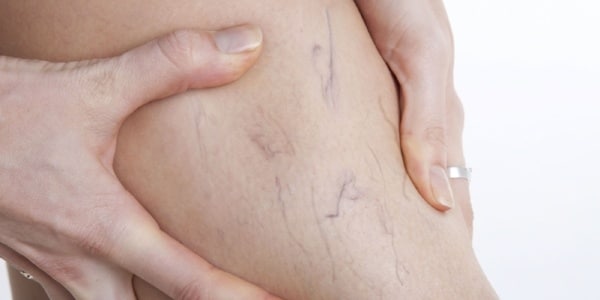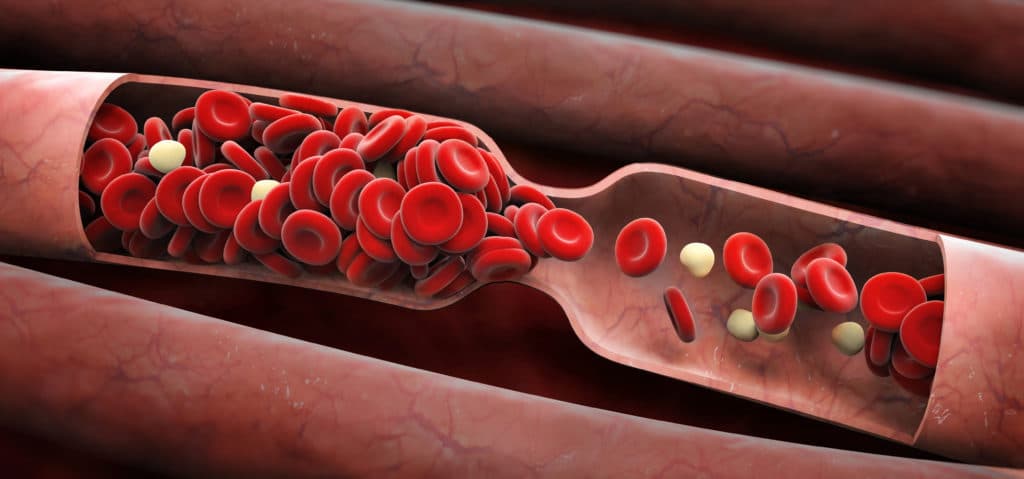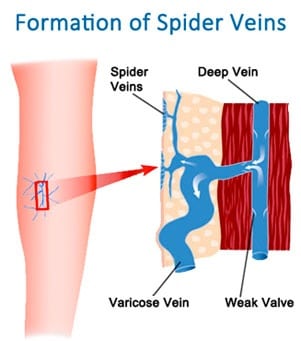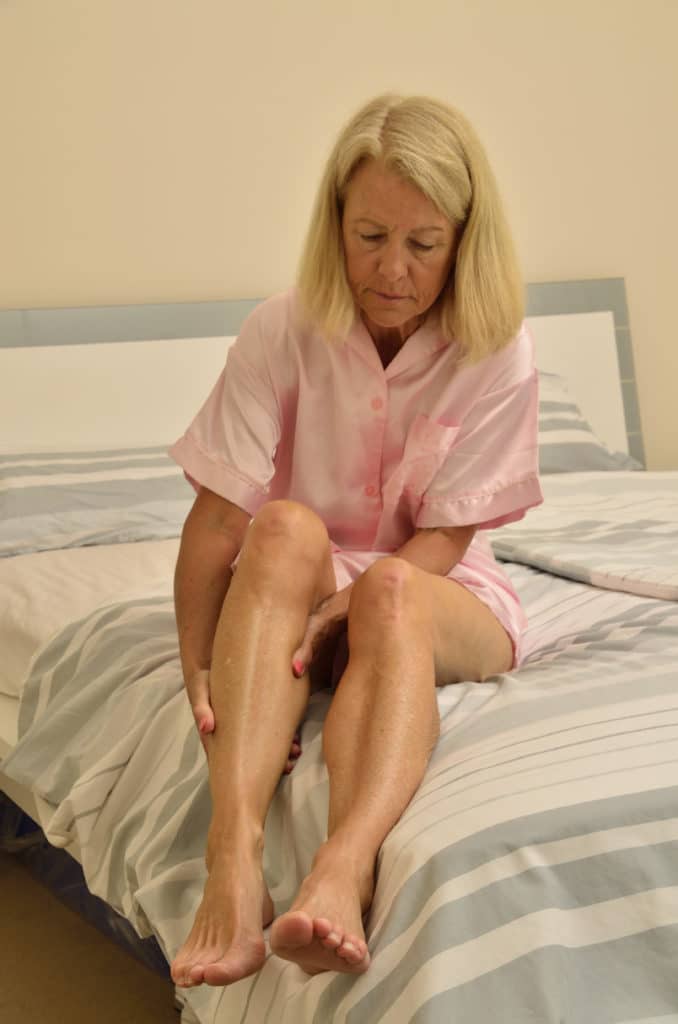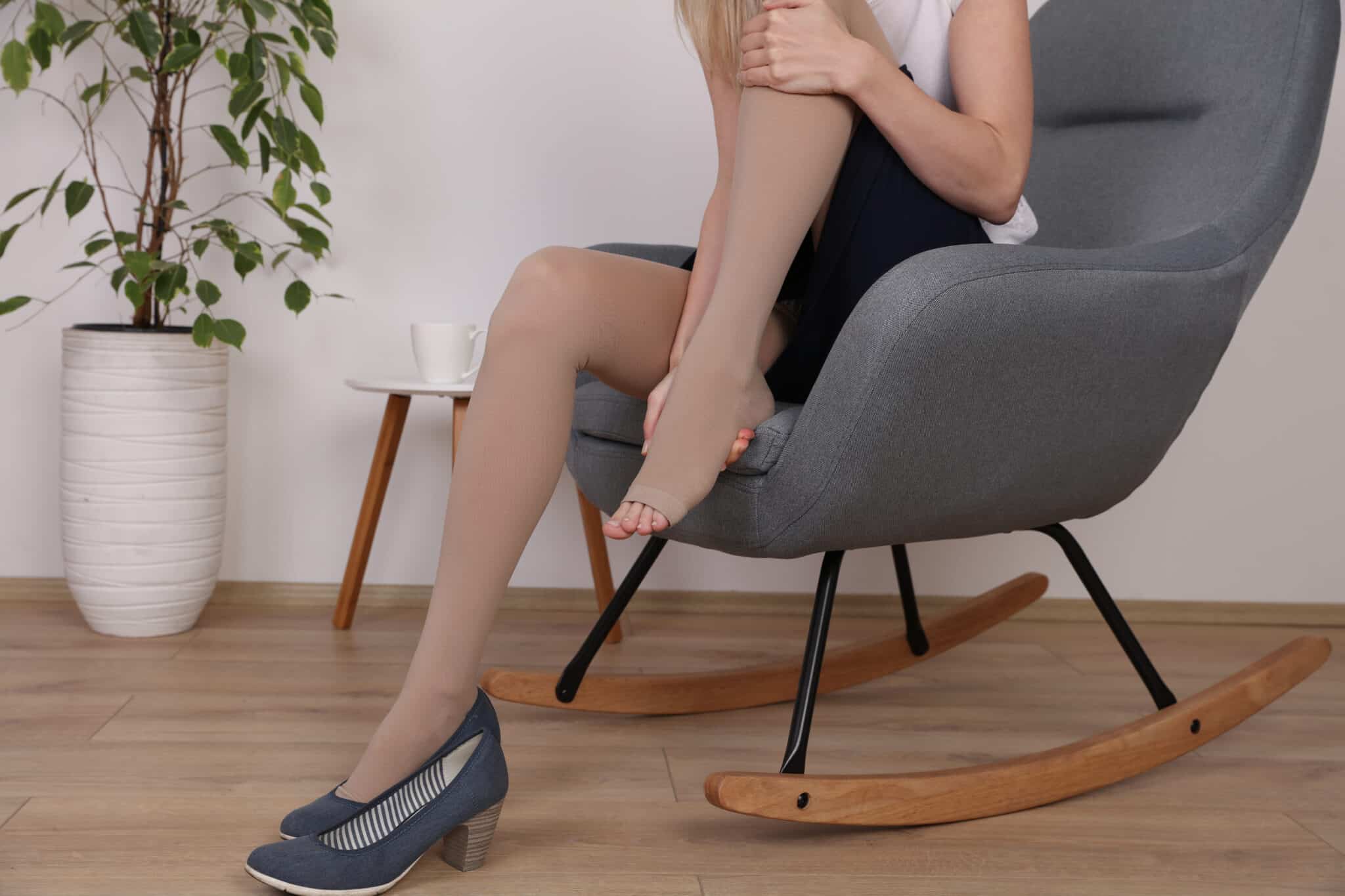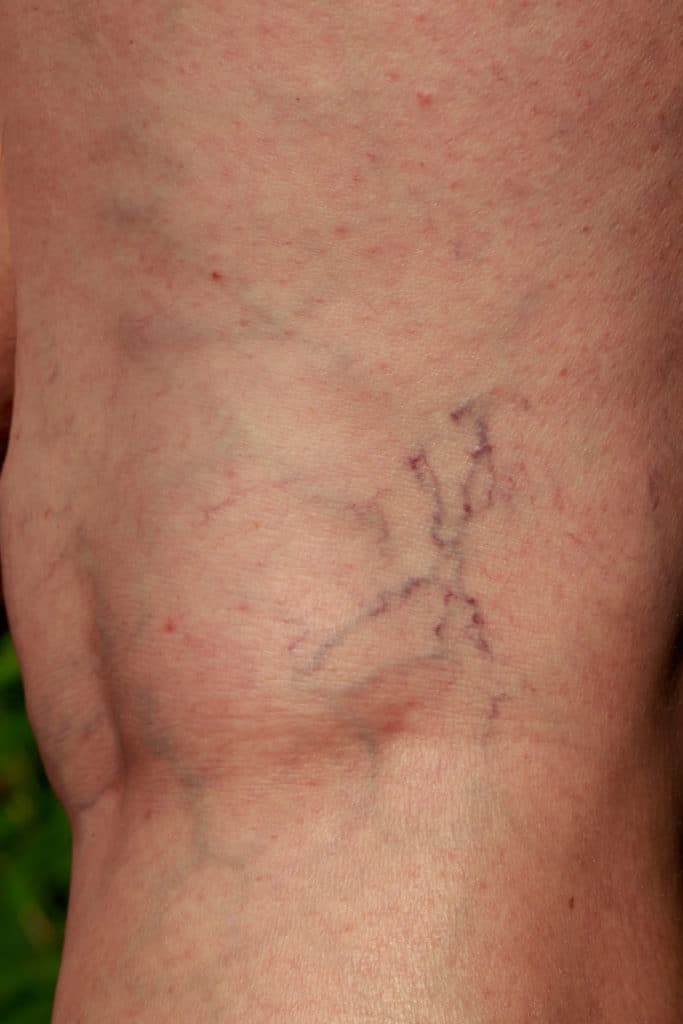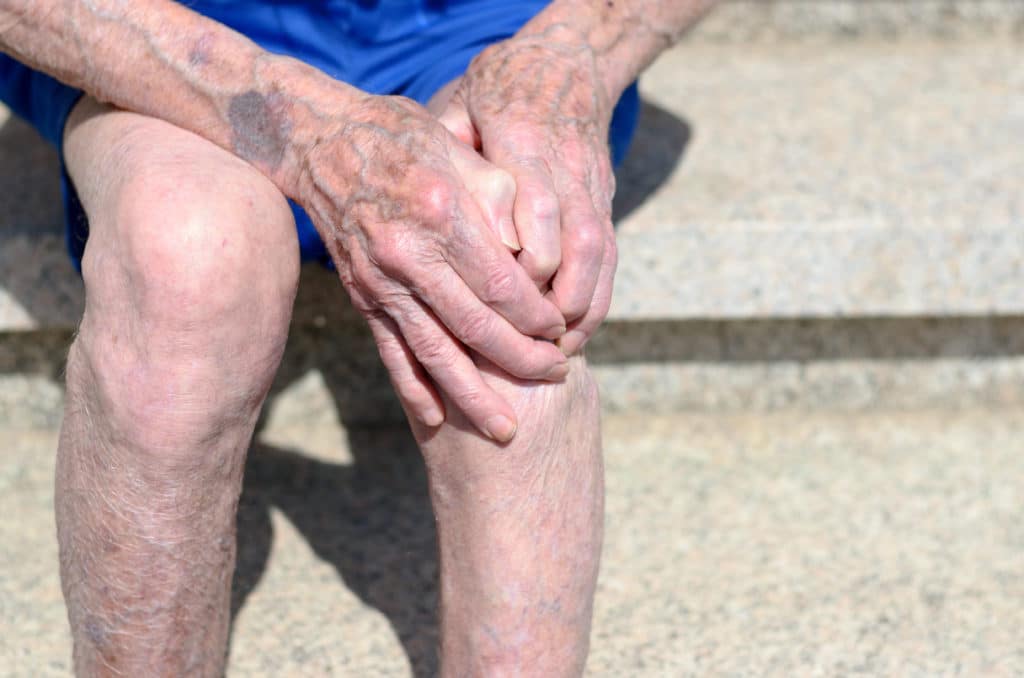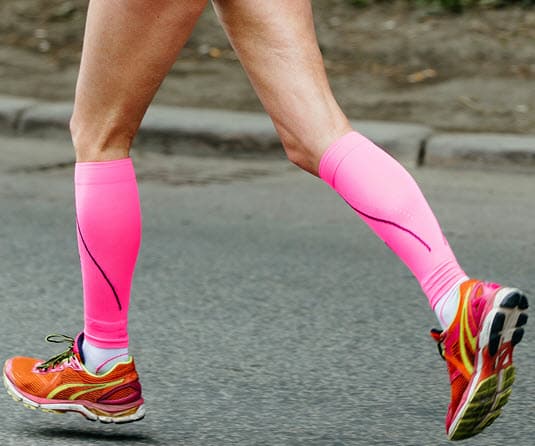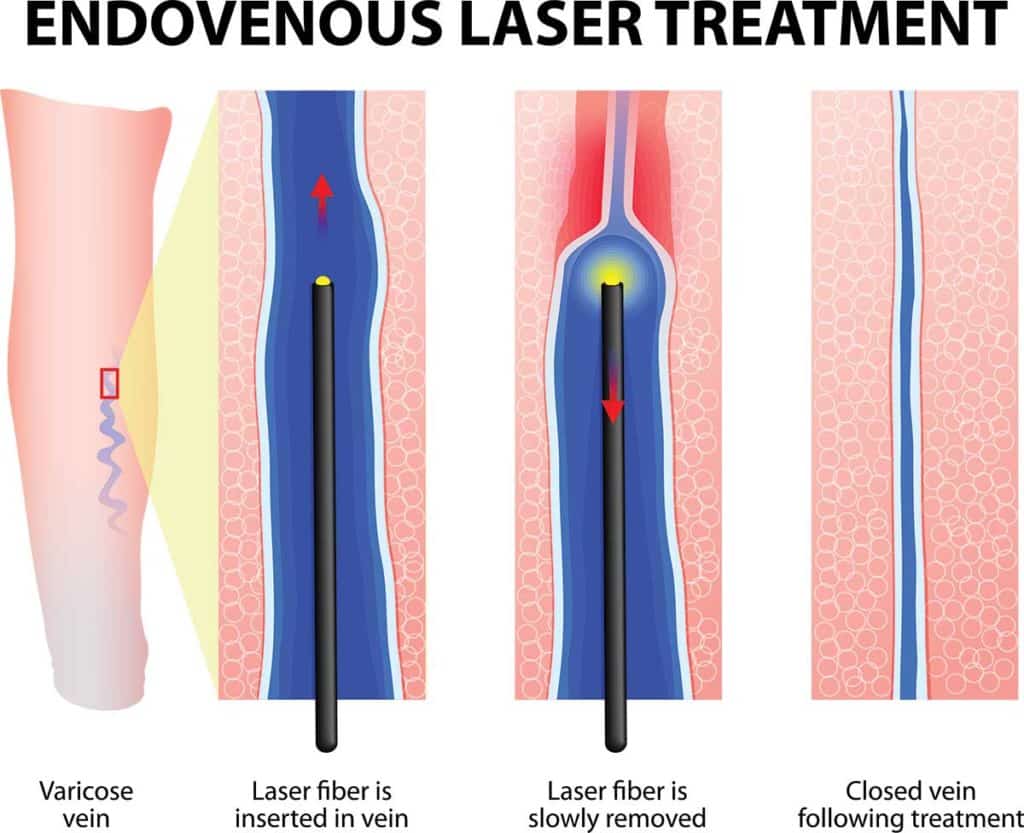Common Symptoms of CVI – Should you be concerned?

The concern about having or developing Chronic Venous Insufficiency (CVI) is a great reason to have your varicose veins fully assessed by a qualified Vein Specialist.
Why should I be concerned about the symptoms of Chronic Veins Insufficiency?
Chronic Venous Insufficiency, also known as Venous Reflux Disease or Venous Stasis, refers to a condition of inadequate blood flow from the legs back to the heart. In healthy veins, blood pressure and muscle movement move blood out of the legs and upwards; one-way valves prevent back-flow of blood between heart beats. When those valves become weak, veins become distended and blood pools in the lower legs. This can lead to Chronic Venous Insufficiency. While CVI is not usually lethal, its symptoms can significantly diminish your quality of life.
What are the most common symptoms of Chronic Venous Insufficiency?
If you experience any of these symptoms, consider getting a full vascular health evaluation from a qualified Vein Specialist to determine what can be done to improve your quality of life.
- Varicose and spider veins
- Swelling of the legs and ankles
- Skin color changes over the legs and ankles
- Sores on the legs (ulcers), especially those that are slow to heal
- Aching legs
- Heavy legs
- Burning, throbbing in the legs
- Muscle cramps
- Leg fatigue
- Bleeding veins
- Itching over veins
- Restless legs
- Leg pain after sitting or standing long periods
Who is at risk of developing the symptoms of Chronic Venous Insufficiency?
There are a number of reasons that venous valves become weaker, and family history tops the list. If other members of your family have CVI, you have a much higher chance of developing this condition. Other factors include:
- Age. Vessel walls get weaker over time.
- Hormonal factors. Hormonal imbalances and fluctuations affect vessel wall integrity.
- Pregnancy. Hormonal fluctuations and the physical pressures of pregnancy are both factors.
- Trauma and other injury to the legs. Scar tissue can also impair blood flow.
- Deep Vein Thrombosis. These are clots that form in the deep venous system and impede blood flow.
There are lifestyle factors, as well, that can increase your chances of developing CVI. Any repeated activity (or inactivity) that impedes or slows blood movement in the body will impair your vascular health, including:
- Standing or sitting for long periods. Gravity can take a toll, and blood moves better when the body is moving.
- Obesity. It takes a lot of physical resources to support increased fat tissue.
- Smoking. Not only does smoking decrease the amount of oxygen that is taken in by the body, its long-term effects include a buildup of plaque and decreased flexibility in the vessel walls.
- Hypertension. High blood pressure can also contribute to a decrease in blood vessel wall flexibility.
- Lack of physical activity. Blood moves better when the body is moving.
Treatment for the symptoms
While there is no cure, there are a number of minimally invasive procedures available that will improve vascular sufficiency, and provide relief from CVI symptoms. Read more about them by clicking on the links.
- Medical Adhesive (Veneseal Closure System)
- Laser Treatment (Endovenous Laser Treatment (EVLT)
- Radio Frequency Ablation (ClosureFast Radiofrequency Procedure)
- Liquid Sclerotherapy and Compression (chemical injection)
A board certified Vein Specialist can provide you with a full vascular exam and Duplex Ultrasound.These tools will measure the blood flow returning to the heart, assess your overall vein health, and allow for the creation of a treatment plan tailored to your specific needs.
Question: I have spider veins on my legs and they really hurt to the touch. Can that be dangerous to my health? Answer: In the large picture, pain associated with spider veins is not life threatening. It would be worthwhile to have an evaluation by a qualified provider to see if these spider veins are…
Read MoreI am scheduled for a right leg radiofrequency ablation. I have venous insufficiency in the saphenous vein and have had a blood clot before. Question: In 2006, I underwent an artificial lumbar disk implant. This failed causing artificial disk to move into the spine. While surgeon removed the artificial disk implant, he nicked the liac…
Read MoreMy doctor said my vein is too large to have sclerotherapy performed first, is this true? Question: I have a few visible spider veins on my lower leg that I want treated with foam sclerotherapy. However, the doctor wants me to do endovenous laser treatment before the sclerotherapy. According to him, my vein is way…
Read MoreI’m having the same pain that I had before my ablation procedure, except it is in a different new location. How long will this go on? Question: It’s been 2 months since my GSV endovenous laser ablation procedure. I have the same pain that I had before the procedure, except it’s in a new location.…
Read MoreI recently had the VNUS procedure done (both legs, multiple veins). Is it normal to have open, circular wound with redness and slight weepiness? Question: All of the other areas are healing nicely, but the area on my shin (a bit off center) has a much larger wound. It has been quite red in the…
Read MoreQuestion: How big of a size do compression stockings come in? Answer: Compression socks should be comfortable and supportive. If the stockings are making your symptoms worse, it is likely that they do not fit you correctly. There are numerous companies that make standard sized compression stockings. Some make 7 to 8 different sizes. Additionally,…
Read MoreQuestion: WHAT CAN I DO TO GET RID OF MY VARICOSE VEINS? Answer: There are numerous options to treat varicose veins. Some are considered medically necessary, while others are strictly cosmetic. Larger veins are treated in a myriad of ways depending on the provider you consult with and their proficiency in a given intervention. The…
Read MoreQuestion: I knelt down the other day and injured the large varicose vein over my knee. It bruised quickly and felt very sore, so I put a pressure bandage on it. Since then, the vein bruise has spread and is now about 12″ up my thigh. It is very red, and I’m not sure what…
Read MoreQuestion: What treatment options are available for my CVI? I can’t sit or stand in one place and I have heavy, aching legs all of the time. I started to have achy, heavy leg feelings about a month after I sprained my right ankle and scratched my left knee last April. I was diagnosed with…
Read MoreQuestion: During the EVLT laser procedure I really didn’t feel well, especially when the laser was on. I felt dizzy and the smell of “burning” freaked me out. Even after I was done, it took me couple hours to feel normal again. Is that normal? Answer: The “odor” and sometimes a taste is normal during…
Read More
